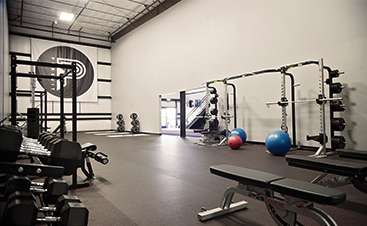Online Nutrition Training
Nutrition and a balanced diet is the single most important element of any successful program. Your intake controls all elements of muscle gain and fat loss. The following section will explain a basic overview the most important components of your nutrition component.
The Method that we utilize for your nutrition is called “Flexible Eating”. Flexible Eating also called Flexible Dieting or If It Fits Your Macros (IIFYM) is built on the fundamentals of macro-nutrients (proteins, carbs, fats) balance and Caloric Load (how many Calories you are eating)
THE 1ST PRINCIPLE OF FLEXIBLE EATING
Essentially, you can eat anything you want as long as the food fits in your set macro-nutrients. At the end of the day, building muscle or losing fat is a math equation that is built on Calories in versus calories utilized. Therefore, as long as you measure/track everything that you eat, everything is fair game. This means that if you would like to eat a piece of candy etc, you able to do so as long as you adjust your macros for the rest of the day to compensate and stay within your macros. The purpose of this is not to tell you to eat crap food or lead you to believe that you’ll achieve your fitness and athletic performance goals by doing so; but to say that food, life, birthdays celebrations and breaking bread with friends doesn’t have to throw you into a downward spiral. You shouldn’t feel horrible for eating a cheeseburger. Enjoy the meal, keep it in your macros, don’t do it every day and get back on your regular eating schedule the next day. Obviously, certain foods are less “filling” or satisfying and whole foods will always be the best choice; but the problem with nutrition, fat gain, dieting and general health is that we bastardize foods as if they are the cause of the problem. When that actual cause of the problem is actually just a MATH equation.
This tends to lead people to ask the following questions: Why is it that people who eat a lot of junk food tend to get fat and perform poorly etc.?
And the answer is because people tend to eat more calories than they are burn. Junk foods, although extremely calorie dense, tend to be very unsatisfying and un-filling. As a result of their un-filling and unsatisfying nature we tend to eat more and increase our caloric load well above what we are utilize. It only takes a 3500 calorie caloric surplus to gain weight. And when you are not very active or training properly the number one place for your body to store excess energy in your body is in the form of FAT.
Let’s do Math!
- What has more calories? 500 calories of rice or 500 Calories of Potato Chips.
- The answer is obvious. They are exactly the same.
- Now which is going to be more Filling? The rice obviously
- Which of those foods is going to have more calories from Carbohydrates? The Rice.
- Which of those foods is going to have more calories from fats? The potato Chips
*And therein lies the problem. 9 out 10 people cannot tell you how many calories they eat on a daily basis, let alone how many of those calories are coming from protein, carbs and fats.
THE 2ND PRINCIPLE OF FLEXIBLE EATING
The first principle of Flexible eating is fairly simple to understand; calories in versus calories out. However, the second principle of Flexible eating is where it gets a little trickier. There are few factors that have to be taking into account when balancing one’s macro-nutrients: Baseline metabolic rate, current caloric intake, weight, percent body fat, activity level, goals, workouts/training, male vs. female and insulin sensitivity. Secondly, you have to make adjustments/tweak as the body responds, conditions change, percent body fat changes, activity level and physical fitness improves etc.
And this is why you have a coach.
Dr Layne Norton, who is Flexible Nutrition master, owns a Ph.D in Nutrtional Science and is flexible eating advocate and natural bodybuilder, says this:
“Well I always tracked macros and there is a story behind that. When I began bodybuilding I read all the muscle mags like anyone else. So of course I tried to copy the diets in the magazines, but being in college I did not have access or could not afford many of the foods they suggested. But the macros were always included in the diets so I figured even though I could not follow the diet exactly, I could still hit the macros. I definitely was more ‘bro’ with my food choices when I started and after my first few shows I binged like crazy and rebounded like everyone else. I started looking for ways to stop the diet/binge cycle and figured that it was better to be able to have something I wanted and just fit it into my numbers than try to eat ‘clean’ constantly and when I finally had a slip up have it turn into a meltdown… and it worked.”
“I always tell people, I don’t have cheat days. I don’t need them. If I want something ‘bad’ I figure out what it will take in terms of macros and I fit it in. No guilt, no remorse, and progress continues.” – Dr. Layne Norton
As you build your metabolism you gain more and more flexibility in your diet.
“For example, if I have a fast metabolism and I’m eating over 500g carbs and 100g fat in the offseason trying to gain muscle, will it hurt me to have a poptart if I’ve hit my macros & fiber? Of course not. But if I have a slow metabolism and/or I’m dieting down for a show and I’m only eating 100g carbs per day is it smart to have 74g of those carbs from 2 pop tarts? Absolutely not. That would be like earning an income of $50,000 per year and buying a $35,000 boat (assuming no savings). – Dr. Layne Norton
The following section will explain a basic overview the most important components of your nutrition component.
A Calorie is a unit of energy that the body uses to produce energy. The total number of calories controls the body’s ability to gain muscle or use stored body fat as a fuel source. If you take in more calories than your body burns, you will gain weight. If you take in fewer calories than your body burns, you will lose weight….Theoretically. The number of calories that you burn during a day depends on your gender, age, body weight, lean body mass (muscle) and activity level.. If you want to build lean muscle mass, your intake should be greater than the amount your body expends. I like to use the analogy, you can’t build a five story building with 3 stories of material. If you want to lose body fat your calorie intake should be less than what your body burns. in reality each person is unique and what works well for one person may not for you. The combination of protien, carbohydrates and fats is ultimately what determines your ability to lean out, put on muscle or both. This is why at Chasingmuscle we make your nutrition program simple and easy to follow. We design simple and easy plans to follow based on flexible dieting controlled by your macronutrient intake. We also include guidance on meal structure if need be. That being said, this is also why consitent monitoring of your progres (weekly) is vital to success. Its not as simple as plug and play or read this book and eat these certain meals. But it is easier in the sense that nothing is off limits, just long it fits in your given macronutrients.
Macronutrients:
- Protein
- Carbs
- Fat
- *Water
BECAUSE WE ARE MORE THAN JUST A GYM
NUTRITION + TRAINING = RESULTS.
Create a lifestyle.



